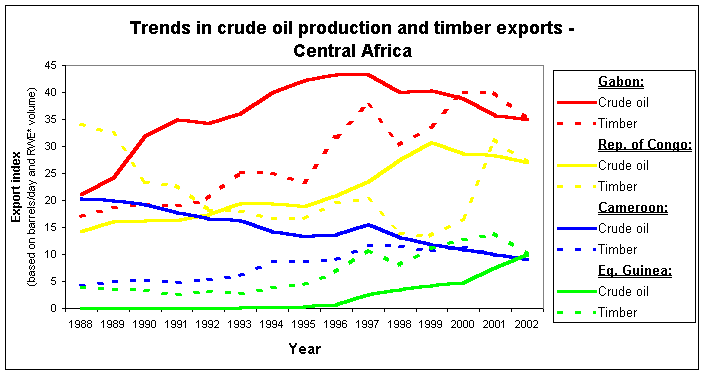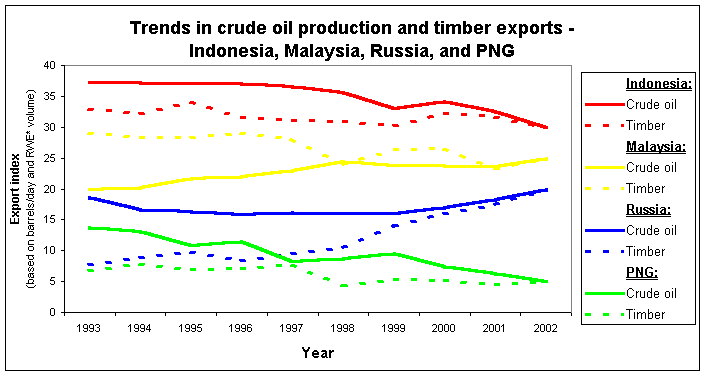|
|
||
|
|
||
|
Deforestation and Crude Oil Production |
||
|
|
||
|
|
||
|
It would be inappropriate to use these statistics to imply or reject a causal link between declining oil production and increased timber exports. A government may stimulate increased timber exports to offset declining oil revenues. However, doing so may be more to do with mischief than good governance given that the national economies and people of most of the countries included on the charts have not benefitted substantially from their countries' oil exports. Further, the systems of money laundering and corruption - and also the political structures which the oil industry tends to engender within producer countries - can be adapted for use in other export-oriented industries. This is likely especially when the growth phase of crude oil production is over. The timber industry is particularly susceptible, not least because the large number of logging/milling companies (which include major multi-nationals) involved makes it useful as a source of at least minor patronage for ruling elites. One might seek a correlation between deforestation and crude oil production. However statistics of forest cover change tend not to reflect change in forest value - which of course differs between interest groups - or forest quality. Timber exports from unsustainably managed forests tend to reduce forest value but, where logging is selective, not forest cover. However, they are the precursor of deforestation. Japan and the USA have had a major influence over the evolution of the petrochemicals industry in Indonesia and Malaysia, and particularly in the evolution of Indonesia's timber industry. France used to dominate both the oil and timber industry in Central Africa. However, the USA has become by far the biggest importer of the region's oil. China (partly through its proxy, Malaysia) now dominates the timber industry of Central Africa and Papua New Guinea, and is emerging as a major competitor in Central Africa's oil industry. |
||
|
Copyright
globaltimber.org.uk
|


